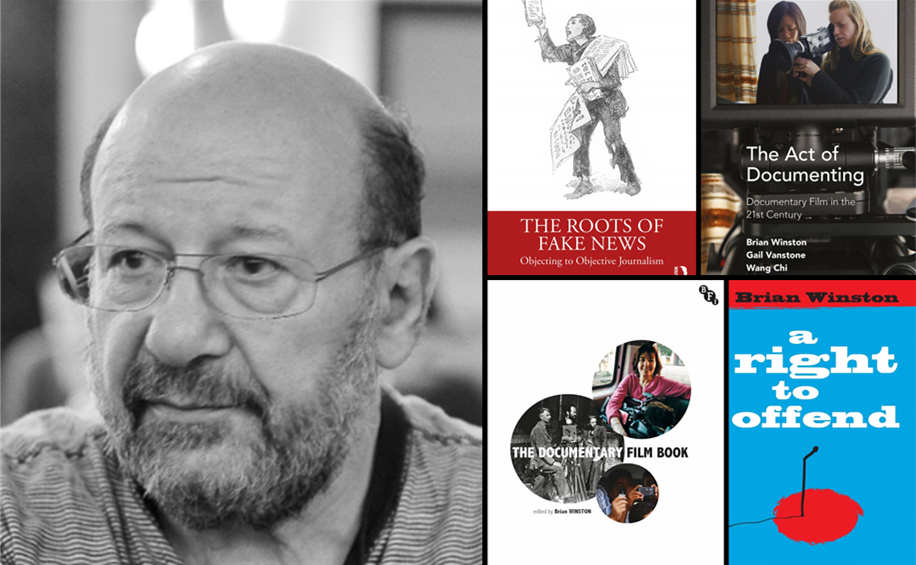A huge hole in the world has opened up with the untimely death of Brian Winston, a foundational scholar whose writings defined the field of documentary internationally.
Brian electrified us with his commitment to the politics and ethics of documentary and journalism, his mission to rewire academia as a place to galvanize hearts and minds, his interrogation of everything written or filmed or said (including my own work!), and his insistence that solidarities matter more than anything else.
Evidence and Arguments
Brian was also willing to change his mind, should the arguments and evidence warrant it. Around 2020 or so, in the middle of the COVID pandemic, some members of the decades-old Visible Evidence Conference (VE) documentary community felt it was time to move beyond the decentralized modus operandi toward a more professional organization with officers and bylaws. Brian rejected this idea.
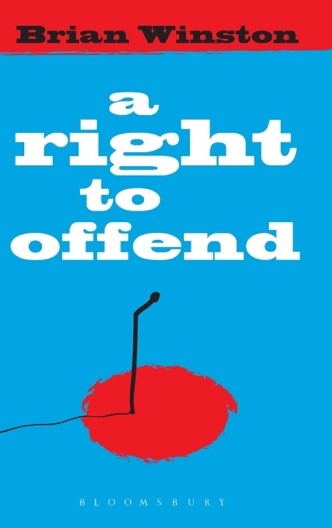
Rousing his earlier training in jurisprudence at Oxford, Brian volleyed vociferous counter arguments. He was committed to the working principle that this group of like-minded documentary devotees refuse professionalism, a word he abhorred. He anticipated that VE would ossify and then beat down ideas and politics, which he contended had brought about the decline of many academic communications organizations.
During the early days of the pandemic in 2020, a large international Zoom call assembled scholars younger than Brian who fervently presented their case with evidence and a democratically conceived detailed plan. Afterwards, he called me and said: “They are right. Time to have VE evolve in new ways with new people. Time to move aside.”
Fifty Years of Unrestrained Polemics
Brian’s twenty-plus books published over a fifty-year academic career emerged from his passion for ideas and debate as well as his advocacy for critical deconstructions of journalism and documentary. Each book launched a polemic, exposing the misapprehensions not only of academia, but also of journalism and documentary: “Misunderstanding Media” (1986); “Technologies of Seeing: Photography, Cinematography and TV” (1996); “Lies, Damn Lies, and Documentaries” (2000); “Messages: Free Expression, Media and The West from Gutenberg to Google” (2005); “A Right to Offend” (2012), to mention only a handful of his vast output. His work carved out the discipline of documentary across both theory and practice at a time when hardly anyone thought it could be an academic area.
In 2021, he published what would be his last book, coauthored with his son Matthew, also a media professor, entitled “The Roots of Fake News: Objecting to Objectivity.”
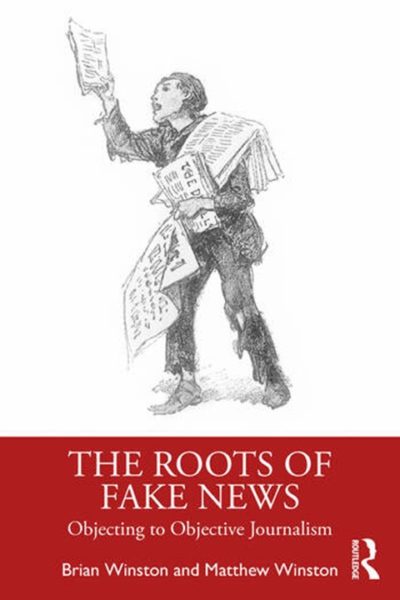
Brian understood television at a granular level from his work as a producer for the BBC and Granada TV in the 1960s. Because he knew broadcast in any format thrived on feisty debates and big personalities, I thought a book launch with him and Matthew would make for a great Zoom event for the pandemic edition of the Finger Lakes Environmental Film Festival (FLEFF), which I direct. I emailed the Routledge link to Raza Rumi, director of the Park Center for Independent Media (a FLEFF partner) and editor of The Edge. Raza, himself a journalist, immediately wrote back with one word in caps: ABSOLUTELY.
Raza interviewed Brian and Matthew. Their passion for objecting to objectivity shredded any remnant of the ideology of neutrality with meticulously researched history and wide-ranging ideas from political philosophy. Nearly 200 of Brian’s friends, colleagues, and comrades from all over the world converged at this occasion. The book launch attracted one of the largest audiences of any festival event.
Journalism, Arguments, and Wine
I first met Brian when I was an insecure graduate student in the late 1970s and was paralyzed by his scorching intellect, incisive wit, and pugnacious demeanor that honed in on ideas and prevailed in any debate.
I came to the University of Wisconsin Madison after a stint as a journalist at a small neighborhood paper in Chicago. I was determined not to let graduate school put a stop to my reporting life, so I picked up extra cash as a stringer for small newspapers in Illinois and Wisconsin to supplement my meager student stipend. My news photographer boyfriend and I covered stories on cheddar cheese and anti-nuclear rallies. I also reported and wrote some on my own, stories about Mexican migrant field workers, community media, and hair salons in rural Wisconsin. My work as a journalist yanked me out of the university library and into the world.
When I was assigned “Bad News” (1976) and More Bad News (1980) in my journalism history seminar, I slugged down both books fast because they aggressively challenged the idea of journalistic objectivity. Produced through the legendary Glasgow University Media Group, which Brian founded, the books articulated in elegant deductive arguments something I sensed in an inchoate, unformed way as a young stringer journalist and grad student but could not quite articulate.
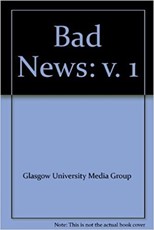
In the late 1970s and 1980s, graduate film studies programs marinated students in Marx, Foucault, Kristeva, Derrida, Barthes, Fanon, post-colonial theory, third cinema, and feminism. These theorists’ labyrinthine debates and abstract systems left me completely flummoxed but also enthralled by new galaxies beckoning from far away. Still, I wondered if my program would ever ask me to analyze any films. I was gravitating toward film history, Foucault, documentary, and critical and subaltern historiography at the time, but unsure of the road map. To read these two books with Brian’s essays was to find a path through this messy entangled garden of ideas and debates.
A few years later at a communications conference that I think was in Philadelphia, I met Brian in person at a sparsely attended reception. I babbled like a fangirl about how his books had destroyed my assumptions. His retort will not shock anyone who knew him — it was classic Brian. He countered: don’t you think it would be much more fun if we argued about the miserable state of American news reporting while we drink this very bad wine?
The Impossible and The Unthinkable
Brian constantly awed me with his ability to engage ideas from scholars both established and new, in cinema, anthropology, and more at the Visible Evidence Conferences on Documentary that he cofounded almost thirty years ago.
In 1990, the Athens International Film Festival and the journal Wide Angle at Ohio University had done the impossible and the unthinkable: they mounted a special small research conference, Fiction/Nonfiction. Documentary, then a marginalized subterranean outpost of film studies, emerged so vigorously that I hardly remember anything else. It was galvanizing, a revival meeting for documentary cultists. Every breakfast, lunch, and dinner throbbed with argument.
In the Columbus airport after the conference, Michael Renov, Brian, and I, waiting for our flights and galvanized by the conference, determined that we needed a group dedicated to documentary beyond the big film and media scholarly organizations. Brian and Michael taught at well-endowed Research 1 institutions (New York University and University of Southern California) with funds to host such a convening. They drafted film and video scholar Jane Gaines to the cause. She hosted the first Visible Evidence Conference at Duke University in 1993.
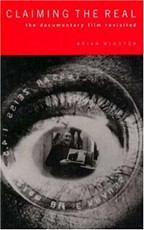
After that conference, Brian invited me to speak about amateur film at the University of Cardiff in Wales. He wrote a blurb for one of my books. He was an external reviewer for my promotion to full professor, a fact he shared a year later with glee that he could maintain confidentiality for an entire year.
He peer reviewed a book of my essays analyzing documentary across platforms. However, he did not offer a glowing nepotistic sales job to the publisher. He had integrity. He called me up and told me that every essay needed a personal story about what I was thinking at the time, what circuits I was traveling in, and who I was talking to in person. He said, give it some life, inject some verve. He was right, and I did.
The Documentary and Journalism Beat
A few years ago, the Society for Cinema and Media Studies (SCMS) asked me to interview Brian for their Fieldnotes initiative which interviews pioneers of film studies. The conference was in Seattle. Summoning journalistic training from our former lives, we prepared with research, questions, and strategies for structure and flow.
In that planning call, I asked him how he was so prolific in publishing books and articles for journals and edited volumes. What was his secret?
Brian laughed at the question and at me. A big, roaring, boisterous, glass-shattering laugh. He told me that he never did any original research. He confided he might be too lazy, so better to work as a vulture of other scholars’ research, books, and ideas. He said they were much better trained at scouring archives and reading dense theories.
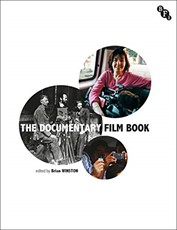
With paring-knife wit, he explained he considered his scholarly methodology a form of ethical plagiarism. He shared that he rose very early each morning to write, an obsession he could not shake.
I interpreted his strategy differently.
Reporting and producing never left him. He covered scholarship in documentary and journalism like an intrepid reporter with a “beat,” scouting for the buried story and the lede.
His writing was how he expressed his unwavering love for all the people he knew in the field of documentary and journalism in a bold act of solidarity. His work was a kind of intellectual fan fiction, conferring Talmudic blessings on his colleagues. He quoted scholars and their arguments without notes and debated their work with the fervor of a World Cup fan who knows all the players’ brilliant moves.
Convening the Comrades
In the last decade, I marveled at Brian’s unflagging organization of dinners, drinks, and coffees, gathering congregations of people together to argue and laugh and listen.
This conviviality extended to his connoisseurship and fervent fandom of the work of early career scholars. He often dragged me to panels where we did not know anyone presenting. He insisted we needed to support those coming up because capitalism, fascism, neoliberalism, loneliness, and emptiness had coiled into academia. At SCMS in Seattle in 2017, he hauled me to a panel on environmental media, where intimidatingly brilliant early career scholars schooled the eight of us in attendance about how car batteries, roads, and electricity grids were all documentary media.
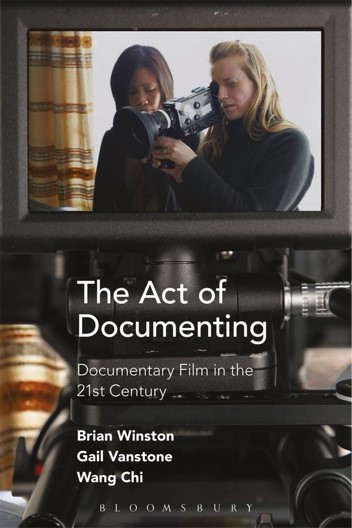
At the 2015 Visible Evidence Conference in Toronto, he organized a dinner with me, Jane Gaines, Michael Renov, Helen De Michiel, Peter Steven, Gail Vanstone, Chuck Kleinhans, and Julia Lesage at a fancy restaurant. For him, this gathering transcended mere dining: it was an underground convening of the documentary comrades who had shared decades of struggle together. That night, he picked up the tab for all our drinks.
Later, when Chuck Kleinhans, one of the three founders of Jump Cut: A Review of Contemporary Media, died in 2017, he decreed that he, Michael, and I must coauthor a short piece for the Society of Cinema and Media Studies website, honoring Chuck as a titan of political documentary.
Unpacking the Multiverse
Three scenes stay with me from the Visible Evidence Conference XV in 2008, which Brian so enthusiastically convened at the University of Lincoln in the UK.
First, the gray conference swag bags each attendee received filled him with pride. When I noticed they were padded, vertical, and fit a laptop perfectly, he beamed. He loved technology but abhorred technocrats.
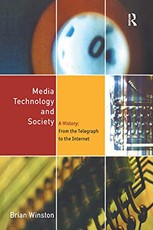
Second, Brian interviewed Ricky Leacock, the direct cinema legend who had shot “Louisiana Story” (1948) with Robert and Frances Flaherty. Ever the journalist, this interview sizzled with rapport mixed with deep unpacking of cameras, style, approach, debates, histories, and politics.
Third, sitting at a table drinking tea during one of the breaks, Brian bluntly told me that I was not an academic.
I was taken aback, affronted, rattled. I countered with a belligerent why? He chuckled deviously. Figure it out for yourself, he retorted. For Brian, documentary was never documentary studies, it was, plain and simple, documentary, an expansive multiverse crackling with many forms, people, platforms, and ideas.
Student Radio in the Middle of the Night
When Trump was elected in 2016, Brian was staying at our home in Ithaca for a few days. In the middle of the night watching the horrifying news of what felt like a right-wing coup d’etat with us, he hopped on his laptop to do an interview on Skype with a UK student radio station at University of Lincoln about the U.S. election, like a reporter on assignment. He said it reminded him of BBC days when he covered elections.
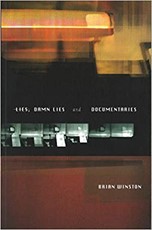
Earlier that night, Brian, my partner Stewart, and I stood in a big banquet room downtown in the Ithaca Hotel watching the returns with the Democratic Party of Ithaca. Big monitors showed Trump winning state after state, red creeping across the screens for a Republican win. Quiet seeped into the banquet hall. It felt like a wake at a Catholic funeral parlor.
The next night, at a dinner at my house where I made Indonesian gado gado and pepes ikan to honor his 75th birthday, Brian commanded my partner Stewart Auyash and dinner guests Renate Ferro, Tom Shevory, and Tim Murray to not abandon hope. He had endured Brexit, he proclaimed. He was a veteran of many disappointing political outcomes. He cautioned that we would survive only if we did not give up the fight.
After Brian blew out the candles on the vanilla cake frosted in red, white, and blue, he delivered a little speech. It was not about himself, but about what needed to be done to embolden us for the battles ahead: continue the struggle, monitor the media, interrogate everything, and never give up.
Closing the Holes
A few years later, he and his partner Gail returned to Ithaca. His love for her drove him to take endless flights across countries and continents just to be in her presence. Gail gifted us gourmet chocolate with swirls of purple, green, orange, handmade in Toronto. We took them sailing. Brian admitted he had never been on a sailboat, but he was ready — he had bought boat shoes in London to be prepared.
There was no wind in the sails that afternoon on Lake Cayuga, but we did not need a big blow that day.
Brian filled our main sail and jib with endless questions about boats, Lake Cayuga, watersheds, Ithaca, how we learned to sail, knots, our son, Ithaca College, academia, writing, cooking, upstate New York, critiques of new books and politics and documentaries, and his deep joy in doing something new with friends and comrades.
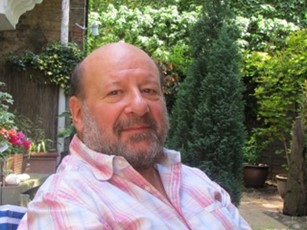
For Brian, ideas vibrated like living organisms twisting out from life itself, never mere academic exercises. His critiques of technological determinism and problematic ethical tactics in media yanked the field back to politics and people.
For Brian, closing all those gaping holes in the universe that isolate and wrestle us down was simply what had to be done.
For Brian, nothing mattered more than the continuous battle to dismantle the demons of power nestled in media — and unwavering solidarity with others, arms locked together in the fight.
Patricia R. Zimmermann is the Charles A. Dana Professor of Screen Studies and Director of the Finger Lakes Environmental Film Festival at Ithaca College in Ithaca New York. The author or editor of ten books, her most recent are “Documentary Across Platforms: Reverse Engineering Media, Place, and Politics” (Indiana 2019) and “Flash Flaherty: Tales from a Film Seminar” (Indiana, 2021). Deep thanks to Jane Banks and Gail Vanstone for their editorial sharpening, a group endeavor of which Brian would have approved.

